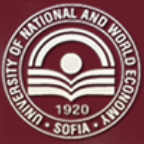Detailed introduction of the Bulgarian National and World Economy University:
Introduction and Overview
The Bulgarian National and World Economy University is located in Sofia, the capital of Bulgaria. It is one of the oldest, most prestigious and largest economic universities in Southeast Europe.
History and Founding Time
The university was founded in 1920 by Stefan Bobchev and Russian immigrant Peter Bogaevsky as the Free University of Political and Economic Sciences (FUPES) by decree of the Minister of Public Education. In 1940, FUPES was transformed into the State Academy of Higher Education Finance and Administration (SHEsFA), and in 1947 SHEsFA was transformed into the Faculty of Economics and Social Sciences of Sofia University. During the communist period in Bulgaria, the university was called the Karl Marx Higher School of Economics. On April 27, 1990, shortly after the end of the communist era, it was renamed the National and World Economy University due to the failure of Marxist economics. On July 26, 1995, the Bulgarian National Assembly passed a bill to formally confirm it.
School Strength
Teaching Staff: It has a team of highly qualified and professional teachers, including experts and scholars with profound academic attainments and rich teaching experience in the fields of economics, management, law, etc., who can provide students with high-quality teaching and guidance.
Academic Achievements: It has carried out extensive and in-depth research in the fields of economics, management, law and other disciplines, and has achieved a series of important academic results, providing theoretical support and decision-making reference for the development of Bulgarian and international economy and society.
International Cooperation: It is the leading and coordinating university in Bulgaria in the Central European University Network Initiative. It has established cooperative relations with more than 200 universities and institutions around the world, and carried out student exchange, teacher visits, joint scientific research and other projects, providing students with broad international exchange and learning opportunities.
Institutional Nature
Public research university.
Educational Philosophy
Aims to support the comprehensive intellectual development of students, cultivate students' ability to creatively solve current and future problems in the fields of economics, management, law and political science, enable students to understand the pros and cons of the world, and support their belief in the value of freedom and the pursuit and defense of truth.
Key laboratories and disciplines
Key disciplines: Economics, International Economic Relations, Finance and Accounting, Business Informatics and other majors are in a leading position in Bulgaria and even in Southeast Europe. Its economics major is the school's trump card major, with a long history and excellent teaching and research level; the international economic relations major focuses on cultivating students' international vision and cross-cultural communication skills, and has achieved remarkable teaching and research results in the fields of international economic cooperation and international trade; the finance and accounting major has cultivated a large number of outstanding financial and accounting talents, and has strong practical ability in corporate financial management, auditing, taxation and other aspects.
Key laboratories: There is a "Economic Digitalization in a Big Data Environment" capability center, etc., which provides advanced technical support and practical platforms for teaching and research in disciplines such as economics and statistics.
Faculty
The school has 8 colleges including the School of Finance and Accounting, the School of Business, the School of General Economics, the School of Law, the School of International Economics and Politics, the School of Infrastructure Economics, the School of Management and Administration, and the School of Applied Informatics and Statistics.
Ranking
Ranked 80th in the 2025 European University Rankings - Eastern Europe. According to the ranking system of the Bulgarian Ministry of Education and Science and the Open Society Institute, the school ranks first in the field of economics, administration and management in Bulgarian higher education.
Cost
Undergraduate tuition fees range from about 2,500 to 5,000 euros per year, and graduate tuition fees range from about 3,000 to 6,000 euros per year, and the specific fees vary depending on the major. The school offers a variety of scholarships and grants to support outstanding students and students with financial difficulties.
Campus environment
Teaching facilities: The campus has a building area of 41,000 square meters, with 120 auditoriums, a large number of computer rooms, 367 study rooms, a modern library with 100 computer workstations and free Internet access, publishing houses, printing houses, bookstores, etc., providing students with good learning conditions.
Living facilities: The school has dormitories for nearly 5,000 students, as well as health education facilities in Ravda, etc., providing students with a comfortable living environment.
Cultural atmosphere: The school has a strong cultural atmosphere and often holds various academic lectures, seminars, cultural activities, etc. to enrich students' extracurricular life and promote their all-round development.
-
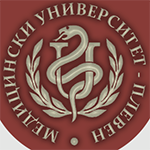
Medical University-Pleven
-

Trakia University
-

Burgas Prof. Assen Zlatarov University
-

Varna University of Management
-
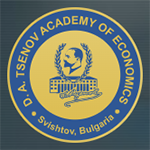
D. A. Tsenov Academy of Economics
-

Technical University - Sofia
-
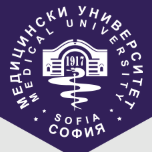
Medical University of Sofia
-

Plovdiv University
-
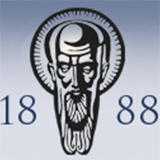
Sofia University
-
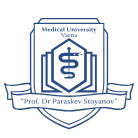
Medical University-Varna
-

Mesoamerican University
-

Istmo University
-

Mariano Galvez University of Guatemala
-

Regional University of Guatemala
-

Galileo University
-

Francisco Marroquín University
-

Rafael Landívar University
-

University of the Valley of Guatemala
-

University of San Carlos of Guatemala
-

Technological Institute of Tlaxcala Plateau
-

Golfo University
-

Technological University of South Sonora
-

Technological University of Huejotzingo
-

Tizimín Institute of Technology
-

Chilpancingo Institute of Technology

